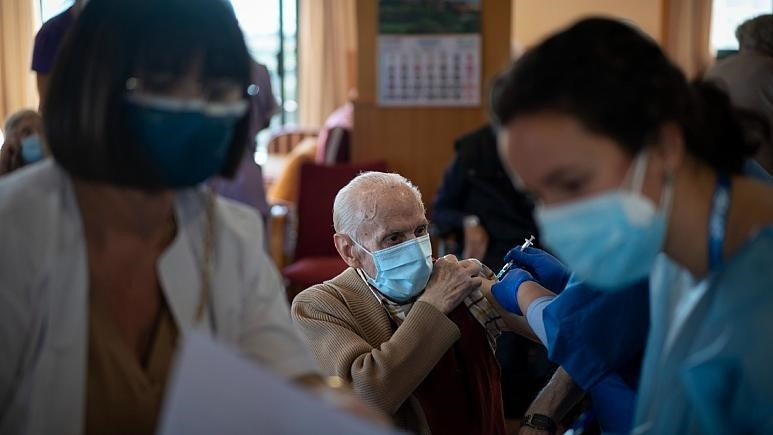Europe has been recording about 1,000 deaths due to COVID-19 weekly. Regional officials even warned that this number does not accurately reflect the reality because statistics and reports from countries are no longer conducted as regularly as before. WHO Regional Director for Europe Hans Kluge has stressed that although the world is no longer in a public health emergency due to COVID-19, the risk from this disease is still hidden. The official urged governments to ensure vaccine coverage of at least 70% for vulnerable groups.
As the SARS-CoV-2 virus is constantly changing, a new wave of the pandemic can break out at any time. Besides, long COVID syndrome (long COVID) also negatively impacts the physical and mental health of patients. According to a recent study’s result, up to 13% of students from elementary to high schools tended to be depressed due to the impact of the COVID-19 in October 2022 alone.
Chief Medical Officer (CMO) of Australia Paul Kelly has announced a national plan to more effectively respond to the long COVID syndrome. Australian authorities have allocated 32.5 million USD for research into and data collection on cases of long COVID.
According to WHO officials, the resurgence of monkeypox, along with extreme heat, also poses major threats to human health. Many countries are grappling with extreme heat. Mexico recorded up to 1,559 hospitalisations related to its third severe heat wave in the second half of June, including 112 deaths from heatstroke and dehydration.
The UK Meteorological Office said that the country experienced the hottest June on record. The UK’s average temperature in June was 15.8 degree Celsius, the highest since 1884. Countries have been quickly taking immediate response measures. However, if governments do not take drastic action to reverse the global temperature trend, adverse and extreme weather patterns will occur more and more frequently.
The health workforce crisis is also a factor causing more risks for human health. A report in the Canadian Medical Association Journal recently reflected the bleak picture of the future of emergency departments in the country in the context of a worsening staff shortage. The UK's National Health Service lacks about 112,000 staff and this number could triple between now and 2037. In recent years, hospitals have been under great pressure due to the influx of patients with long COVID and other respiratory diseases.
United Nations Secretary-General Antonio Guterres once called on the world to support the WHO to achieve the highest standard of health for all. Countries need to further uphold their spirit of cooperation, solidarity and while staying vigilant and preparing all response plans to cope with health-related challenges.
















